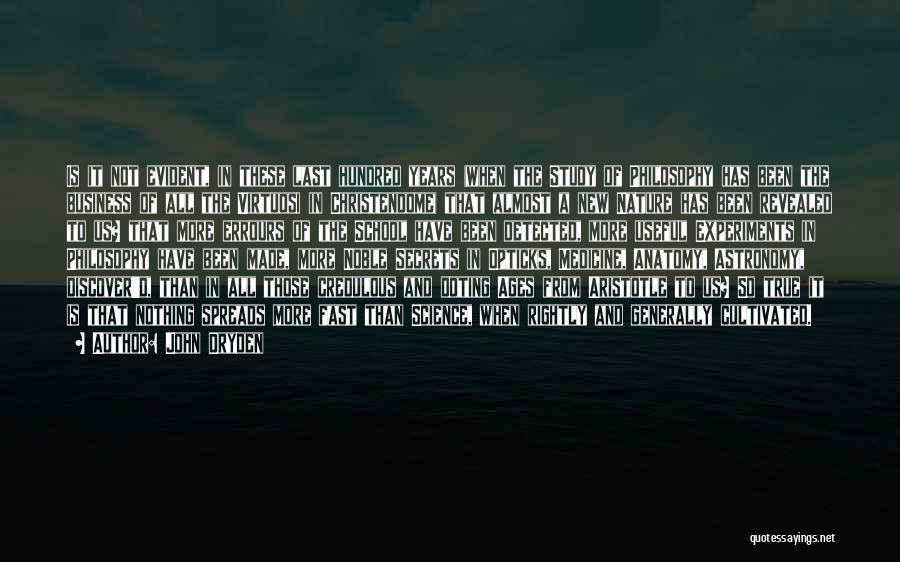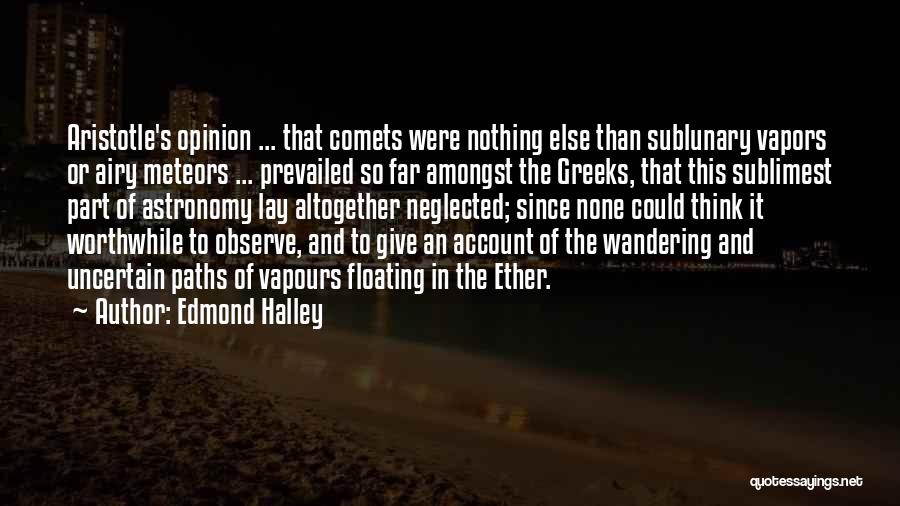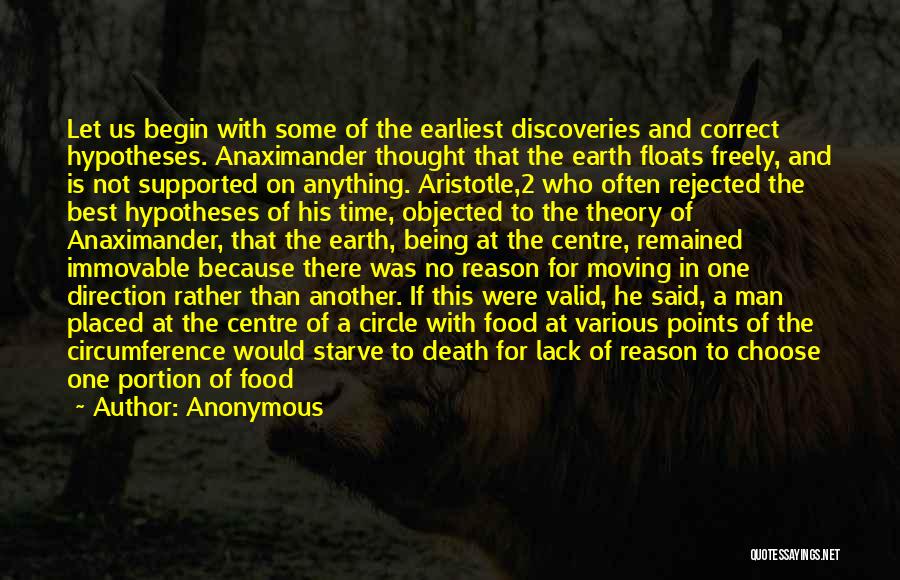Aristotle Astronomy Quotes & Sayings
Enjoy reading and share 3 famous quotes about Aristotle Astronomy with everyone.
Top Aristotle Astronomy Quotes

Is it not evident, in these last hundred years (when the Study of Philosophy has been the business of all the Virtuosi in Christendome) that almost a new Nature has been revealed to us? that more errours of the School have been detected, more useful Experiments in Philosophy have been made, more Noble Secrets in Opticks, Medicine, Anatomy, Astronomy, discover'd, than in all those credulous and doting Ages from Aristotle to us? So true it is that nothing spreads more fast than Science, when rightly and generally cultivated. — John Dryden

Aristotle's opinion ... that comets were nothing else than sublunary vapors or airy meteors ... prevailed so far amongst the Greeks, that this sublimest part of astronomy lay altogether neglected; since none could think it worthwhile to observe, and to give an account of the wandering and uncertain paths of vapours floating in the Ether. — Edmond Halley

Let us begin with some of the earliest discoveries and correct hypotheses. Anaximander thought that the earth floats freely, and is not supported on anything. Aristotle,2 who often rejected the best hypotheses of his time, objected to the theory of Anaximander, that the earth, being at the centre, remained immovable because there was no reason for moving in one direction rather than another. If this were valid, he said, a man placed at the centre of a circle with food at various points of the circumference would starve to death for lack of reason to choose one portion of food rather than another. This argument reappears in scholastic philosophy, not in connection with astronomy, but with free will. It reappears in the form of 'Buridan's ass', which was unable to choose between two bundles of hay placed at equal distances to right and left, and therefore died of hunger. — Anonymous





